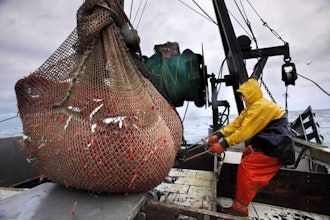
COVENTRY, England — The University of Warwick announced Warwick Agri-Tech to help the future of farming with automation – addressing issues such as labor shortages, food insecurity and loss of biodiversity.
Warwick Agri-Tech will also support the U.K. to meet climate targets while enabling the production of enough nutritious food for the growing population. It will combine two world-class faculties at WMG at the University of Warwick and the School of Life Sciences, working with the High Value Manufacturing Catapult to spearhead automation in areas such as horticulture, crops and forestry.
Robots will be a key tool for farmers as food production comes under increasing pressure. There is a constant demand to grow enough high quality, nutritious food to feed an expanding human population, and to do so in a way that won’t harm the planet.
According to scientists, the U.K. will need to produce 50% more food by 2050, while reducing land consumption by 50%. This is further challenged by labor shortages, a broken food system and the fact we are overusing the Earth’s biocapacity — the capability of ecosystems to produce useful biological materials and to absorb waste.
The University of Warwick is in a unique position to tackle these issues and develop farming technology, with expertise in both automation and life science.
Warwick Agri-Tech was born out of an initial project which developed a crop monitoring robot (Crombot) to move autonomously up and down glasshouses and check fruit for ripeness. Officially launching today, with a visit from the Department for Environment, Food & Rural Affairs (DEFRA), Warwick Agri-Tech will continue its research on several key projects:
- An Autonomous Logistics Project – developing an autonomous vehicle to help horticultural companies to optimize their product handling logistics.
- A Smart Tree Production System – Warwick Agri-Tech is working with J&A Growers, who are the leading U.K. growers of quality bareroot trees and hedging, to autonomously sort and grade sapling trees. This will ensure resilience against labour shortages and is scalable in the face of the U.K.’s ambitious tree planting targets.
- Autonomous Precision Application – creating an autonomous, AI-based weed control robot, to reduce utilization of herbicides by over 90% - improving soil health and biodiversity.
The university’s leading crop research center, at based at the Innovation Campus, Stratford-upon-Avon, is a leading, 200-hectare agricultural research site. Scientists at the university will collaborate directly with industry partners and the government to drive implementation of new technology in the farming sector.
“Seeing the innovation going on here is really inspiring – I firmly believe that Agri-Tech in the U.K. has a huge future and I look forward to seeing new ways of working being trialled here at Warwick become mainstream agricultural practices in the future," said Warwick Professor and Chief Scientific Adviser Gideon Henderson.
“The emerging needs of the agriculture sector have provided a perfect opportunity for the University of Warwick to bring together our expertise in manufacturing automation with our expertise in life sciences, so we can simultaneously develop robots suitable for use in greenhouses and fields, and ways of growing crops which take advantage of the opportunities of automation," said David Greenwood, Director for Industrial Engagement, and CEO of the High Value Manufacturing Catapult at WMG. "As the U.K. struggles with availability of agricultural labour, and high food prices, this promises to unlock nutritious and affordable food for all.”
Professor Miriam Gifford, School of Life Sciences, University of Warwick, added, “Warwick Agri-Tech will benefit from the entrepreneurship of WMG and the history of excellence in agricultural innovation from the School of Life Sciences’ Warwick Crop Centre, plus the combined stakeholder groups to inform and enable outputs. The fresh food industries need automation urgently. Warwick Agri-Tech will grow rapidly into research and innovation space screaming for workable solutions and expecting substantial funding initiatives.”






















